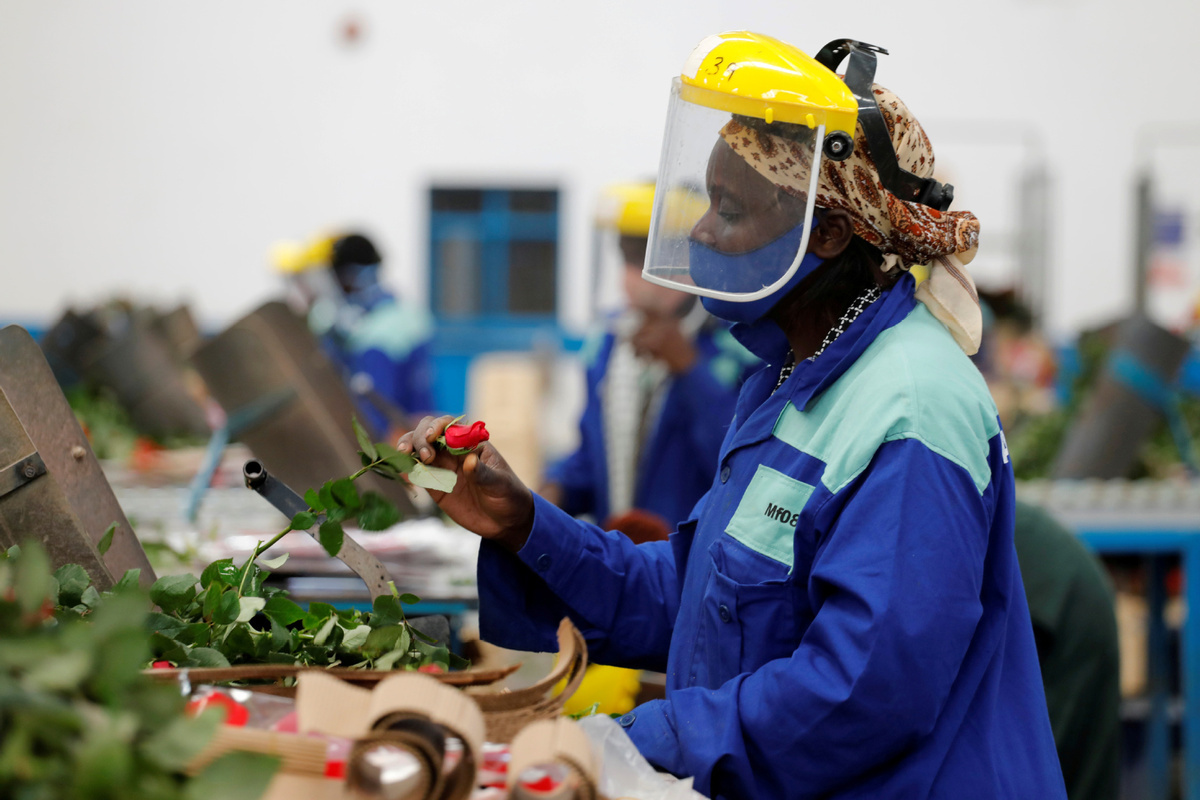
A worker sorts roses on the packing line while wearing protective equipment to help fight against the spread of the coronavirus disease (COVID-19) at the Maridadi flower farm in Naivasha, Kenya, July 20, 2020. (Photo: Agencies)
A five-nation survey by research firm GeoPoll in Sub-Saharan Africa has found that 60 percent of those employed prior to the coronavirus pandemic have not been able to work as a result of the outbreak and nearly half of those are unsure if they will have jobs to go back to.
The survey conducted in South Africa, Kenya, Mozambique, Nigeria and Cote D'Ivoire and released last week revealed that four out of five of those polled in the survey of 2,500 respondents reported that their income has decreased during the pandemic. Those in informal jobs, particularly in trade and agriculture, reported the most widespread and largest falls in incomes.
Overall, some 60 percent of formal sector workers reported income falls, but 88 percent of informal sector workers reporting reduced earnings. The International Labor Organization estimates the informal sector accounts for over 80 percent of the workforce in sub-Saharan Africa.
"The closure of borders, restrictions on movement and suspended education and hospitality sectors have wrought financial havoc across the African nations studied, with those in informal employment being hardest hit," Roxana Elliott a content manager at GeoPoll, said.
The research also revealed that the recent lifting of restrictions by most African countries is unlikely to repair the damage quickly, with only 57 percent of the previously employed saying they still have work to return to once coronavirus restrictions are lifted.
Moreover, just 6 percent of the respondents reported they have sufficient funds to cover their household expenses for more than five months, and most are already running down their savings or relying on credit.
Altogether, 30 percent of the polled Africans said they would be covering most of their expenses next month through borrowing, and 28 percent by using savings. Moreover, during the pandemic, almost half of all respondents have taken an extra loan to help cover household expenses.
"With many sub-Saharan Africans still excluded from borrowing, the impact of the pandemic on income and employment, which has hit the lowest income earners the hardest, will make paying for basic expenses, such as food and rent, a challenge for millions over the coming months," Elliott said.
Despite the harsh economic effects being felt, a majority in the nations studied believe their governments should prioritize protecting people from the virus, rather than focus on reopening economies. Of the countries studied, Nigeria was the only one in which a majority feel that reopening the economy should be a priority. However, it was also found that those whose income has decreased significantly were more likely to favor reopening economies.


